Search
Remove Ads
Advertisement
Summary 
Loading AI-generated summary based on World History Encyclopedia articles ...
Search Results
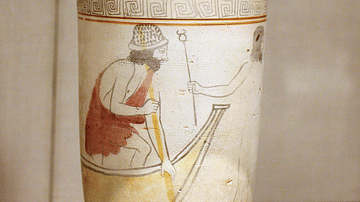
Definition
Charon - The Ferryman to the Dead in Greek Mythology
Charon is a figure from Greek mythology where he is the boatman who ferries the souls of the dead across the waters of Hades to the judgement which will determine their final resting place. The Greeks believed the dead needed a coin to pay...

Image
Charon, Attic Lekythos Detail
A detail of an Attic lekythos vase, c. 450 BCE showing Charon, the boatman who ferried souls across the river Styx to Hades. To the right is Hermes, identified by his kerykeion or herald's staff and fulfilling one of his functions as guide...
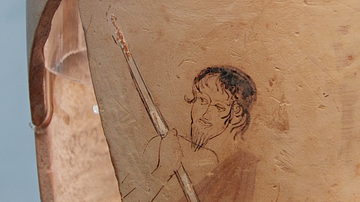
Image
Lekythos Depicting Charon
Attic white-ground Lekythos depicting Charon, the ferryman of Hades, pushing his boat across the Acheron, c. 450 BCE. (Staatliche Antikensammlungen, Munich)
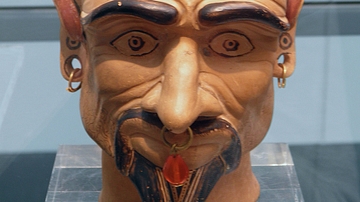
Image
Rython in the Form of Charon
Etruscan Rython in the form of Charon, the ferryman of Hades, 4th century BCE. (Staatliche Antikensammlungen, Munich)
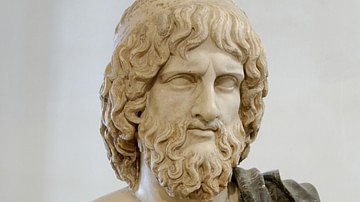
Definition
Pluto
Pluto is the god of the Underworld in Roman mythology. His Greek counterpart was Hades. Pluto chose never to sit on Olympus with the other gods and goddesses, preferring to remain in the Underworld. Family Pluto (Hades) was the son of...

Definition
Hades
Hades was both the name of the ancient Greek god of the underworld (Roman name: Pluto) and the name of the shadowy place below the earth which was considered the final destination for the souls of the dead. Perhaps the most feared of the...
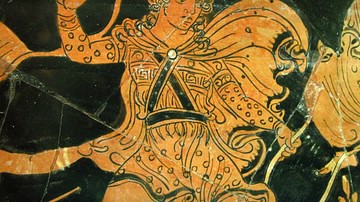
Definition
Orpheus
Orpheus is a figure from ancient Greek mythology, most famous for his virtuoso ability in playing the lyre or kithara. His music could charm the wild animals of the forest, and even streams would pause and trees bend a little closer to hear...

Definition
Colosseum
The Colosseum or Flavian Amphitheatre is a large ellipsoid arena built in the first century CE by the Flavian Roman emperors of Vespasian (69-79 CE), Titus (79-81 CE) and Domitian (81-96 CE). The massive arena held 50,000 spectators and hosted...
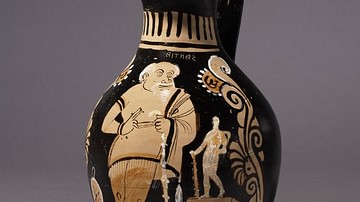
Definition
The Frogs
The Frogs is a comedy play by Aristophanes (c. 445 - c. 385 BCE), the most famous of the comic playwrights of ancient Greece. Named after the creatures who composed the play's chorus, it won first prize at the dramatic festival at Lenaea...

Definition
Cerberus
Cerberus (also spelt Kerberos) is a vicious three-headed dog in Greek mythology, who guards the entrance to the underworld. He allowed the souls of the dead to enter Hades but prevented the living (except for a few exceptions) from entering...